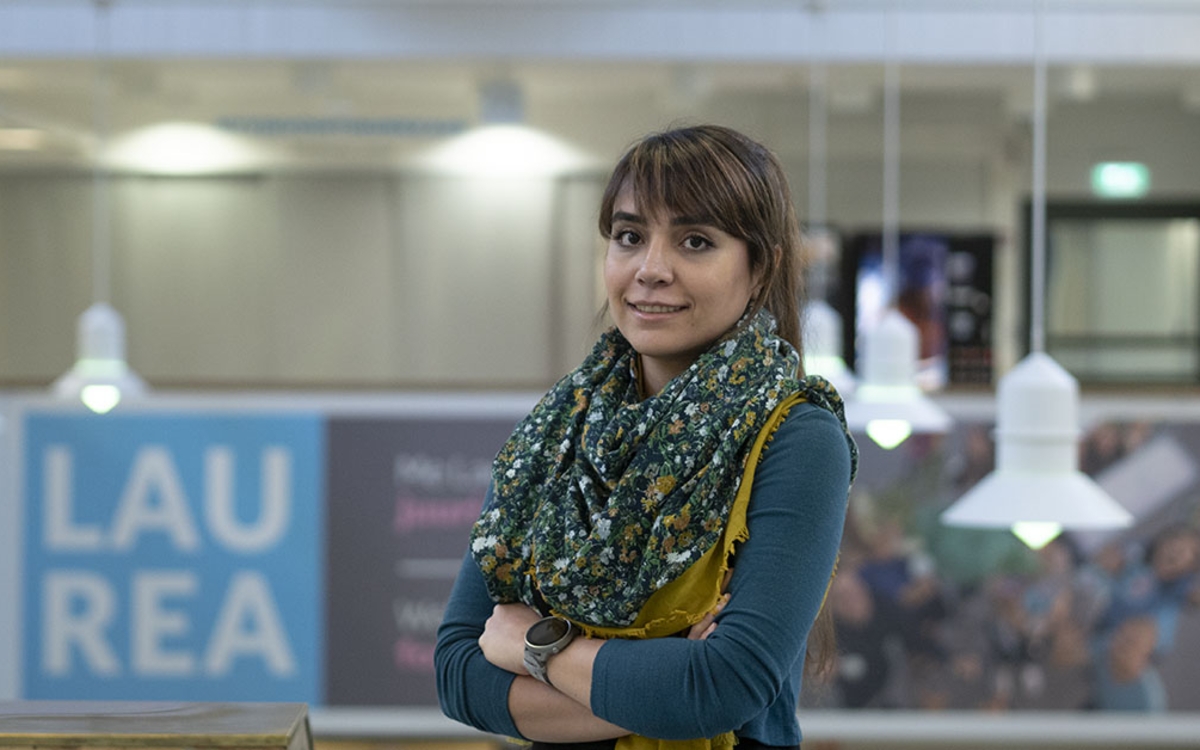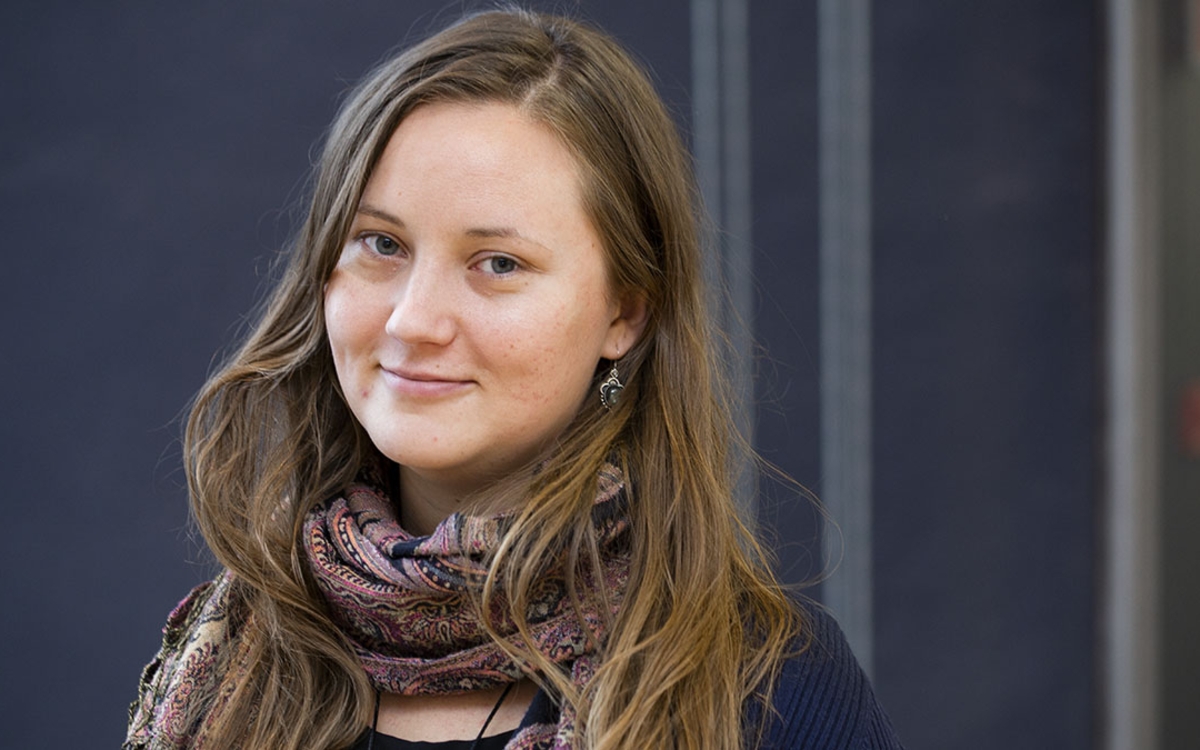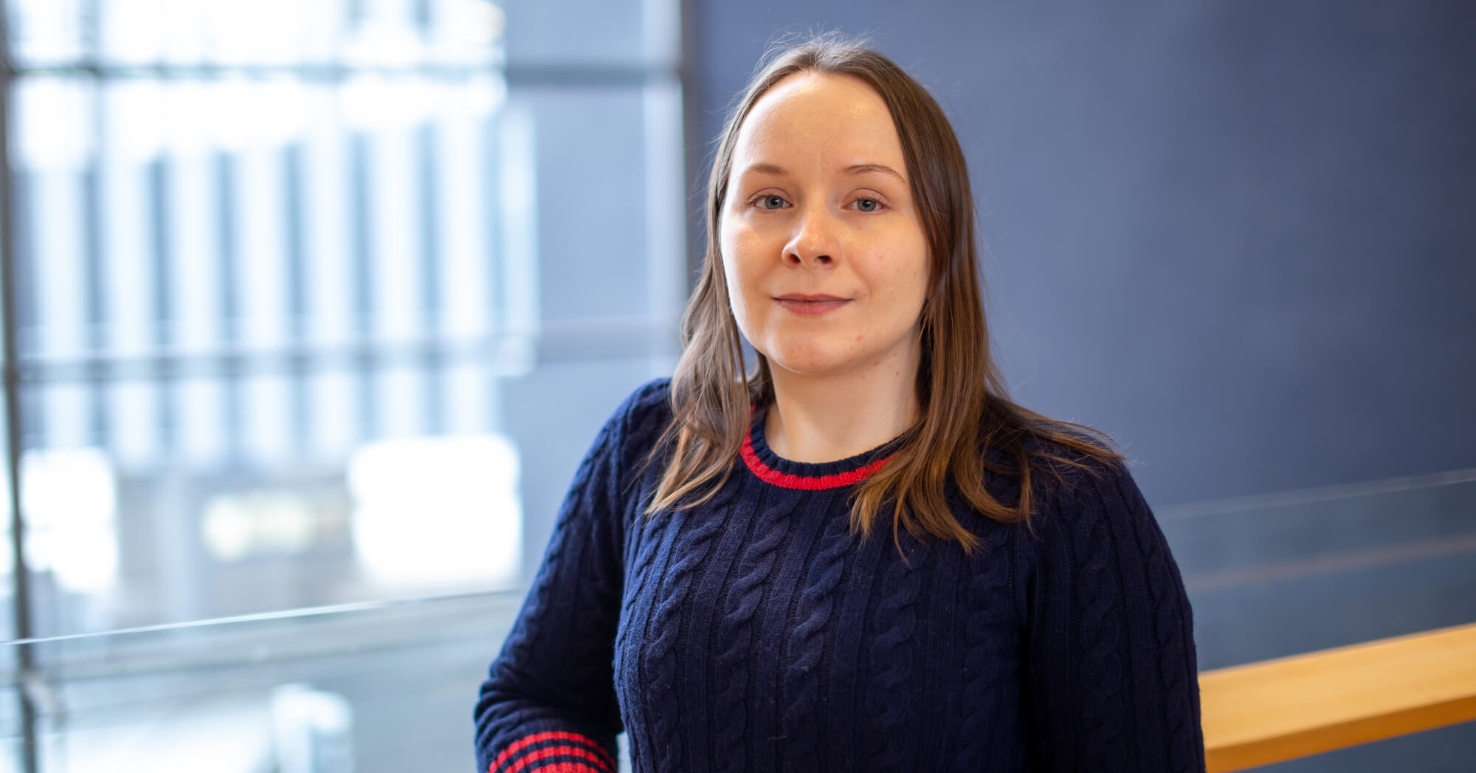Degree Programme in Nursing
Laurea’s nursing programme offers high-quality education and hands-on training in both basic and advanced nursing skills.
Laurea is the largest educator of nurses in Finland. In our nursing programme taught in English, you will study in multicultural and diverse student groups. The nursing studies are practically oriented and contain lectures, workshops, and simulation exercises.This is an day time teaching programme with English as the teaching language. The Bachelor’s degree in nursing makes you eligible to work within the EU without additional training.
Basic information
- Degree programme: Bachelor's Degree Programme in Nursing
- Degree title: Bachelor of Health Care
- Duration of studies: 210 cr, 3,5 years
The next application period: Will be announced later.
NOTE: All applicants for the Degree Programme in Nursing are required to have basic Finnish skills (level B1) and English skills (level B2).
See the certificates required for applying here.
As a registered nurse, you will work for the holistic wellbeing of individuals, their families, and other groups. Promoting and maintaining good health as well as preventing and treating illnesses will be your main interests. Good interaction skills and communication skills are required in nursing. Please note we require official language certificates for Finnish language skills. See the certificates required for applying here.
Programme content
Degree studies at Laurea consists of core competence studies, that are obligatory for all students, and complementary studies that allow you to deepen or extend your knowledge. Nurse education contains seven work placements where you work with your future colleagues in various health care settings, developing professional skills and the nursing profession.
Core competence (180 ECTS)
Core competencies are taught in English. Studies include 90 ECTS of theoretical studies and 90 ECTS of practice, out of which 15 ECTS are for complementary work practice done in different types of health care environments. Placements give you valuable experience and skills of working with real patients in authentic health care situations.
Core competencies studies give you fundamental skills and competencies in the following areas:
-
Basics of client-oriented nursing
The aim is that students can plan, implement and evaluate evidence-based nursing to respond to their clients’ basic needs and in daily activities. Students can analyse their role as nursing professionals and their professional capabilities for teamwork and operating in the workplace.
-
Health Promotion and Nursing of Non-communicable Diseases
These studies enable you to understand the significance of evidence-based health promotion and you learn to plan, implement and evaluate evidence-based nursing care and support the self-care of patients with internal medicine and infectious diseases.
-
Decision-Making in Clinical Nursing
During these studies you will learn to plan, implement and evaluate the evidence-based nursing care of a surgical patient, patients requiring immediate treatment and patients with mental health and substance abuse issues.
-
Nursing Care in the Promotion of Client’s Participation and Well-Being at Different Life Stages
The core competence accomplished in these studies is the nurse's activities in services promoting the well-being of vulnerable clients and clinical nursing at different life stages.
-
Changing social and health care services
These studies enable you to critically assess your own, the team's and the work community's activities from the perspective of the quality of the services and assume responsibility for client-oriented and continuous development of social and health care services.
-
Nursing care of seriously ill patients
During these studies you will learn to integrate extensive nursing competence in comprehensive patient care, and you learn to find creative solutions and make decisions in unexpected work and patient care situations.
Complementary competence (30 ECTS)
Complementary competencies can be studied in either English or Finnish. During complementary competence studies, you can specialize and develop your skills in specific areas. We recommend that you take more than one study unit or project from the field of specialization to develop your overall competence, but you can also take separate studies. Complementary studies are divided into Complementary practice 15 ECTS, AND Finnish language courses OR other courses to deepen your professional nursing knowledge 15 ECTS.
-
Complementary work practice 15 ECTS
Complementary practice is done in a nursing environment that supports the professional competence chosen by the student.
-
Complementing professional competence 15 ECTS
Finnish studies are recommended to degree nursing students whose language of prior education is not Finnish. Finnish language studies are oriented towards the nursing career and the vocabulary and professional terms used are related to nursing. Studies are designed to strengthen your employment possibilities. Our Finnish language lecturers will assist you in choosing the right language courses that will help you to develop your language skills.
Introduction to Finnish Health Care
After completing this course, you will be able to communicate both orally and in writing in frequent situations in the professional field (level B1.1) and further develop skills and understanding of communication culture in Finland.
Nursing Documentation in Finnish
This course will enable you to develop skills and understanding of professional instructions, documentation and multi-disciplinary interaction and use relevant information of nursing practices and producing structured professional documents.
Boosting Professional Finnish by Simulations
After this course, you will be able to guide patients in their care (clinical care, home care instructions, medications, etc.). You will broaden your nursing and medical vocabulary and be able to read and utilize evidence-based nursing recommendations and guidelines in Finnish.
If you don’t need Finnish courses, you can choose all 15 credits yourself.
Studying in the nursing programme
Student groups are multicultural and diverse. One of the benefits of The nursing programme is a day-time programme and includes contact teaching and face-to-face instruction contact teaching is the opportunity to discuss diverse viewpoints with others and find a common understanding of nursing concepts such as health, illness, family e.t.c
Multicultural student groups give you the possibility to develop multicultural competence as you get to learn about new cultures every day. Our students speak many different languages, and our groups have many second-generation immigrants.
In the beginning of your studies, those who have completed previous higher education studies will attend a workshop where you assess your previous studies and design a personal study path. Your previous studies and work experience can be recognized as a part of your nursing studies using methods of recognition of prior studies and demonstration of competence. Previous work and study experience from other fields may be suitable for recognition.
All courses on clinical nursing include theory lessons, workshops and simulation exercises. Nursing skills (such as measuring blood pressure or administering injections) are initially practiced in simulation. After learning practical skills, you will advance to problem-solving situations. You will consider different scenarios and actions for different nursing situations, patients, and illnesses, after which, you will continue to deepen your knowledge and problem-solving skills in work placements in different nursing environments.
Close cooperation with companies, the public and third sector organizations is part of Laurea's pedagogical model known as Learning by Developing (LbD). During the studies you will carry out projects in authentic environments. For instance, students have carried out projects that include visiting English-speaking schools to give health education for children and teenagers and have participated in different community outreach work on health promotion in collaboration with working life partners.
All applicants for the degree programme in Nursing are required to have basic Finnish skills (level B1) and English skills (level B2).
Finnish language will be strongly supported throughout your studies. The programme also includes Finnish studies, particularly focusing on nursing-related vocabulary. All students whose first language is not Finnish will take a preliminary Finnish proficiency test, on the basis of which they will be offered different Finnish language courses.
See the certificates required for applying here.
Employment opportunities
As an expert in nursing, you will monitor the patient’s condition, administer medication, coordinate the overall treatment and provide guidance for patients and their family members. The most important areas of expertise in a nurse's job include support for health and functional ability, prevention and treatment of illnesses and disabilities, support for recovery and rehabilitation and alleviation of suffering. Encounters with clients and good social skills are also important areas of a nurse’s work.
Nurses graduating from Laurea have excellent employment opportunities in a wide range of nursing environments, and in national and international organizations. According to your personal interest, you may be employed in an inpatient ward, an operating theatre, home care services, a pediatric ward, a psychiatric hospital, geriatric care, substance abuse care or work in third sector organizations like the Red Cross, the Heart Association, and mental health associations etc.
Because of the compulsory and complementary Finnish language courses, Laurea's nursing graduates have the sufficient skills in Finnish to be employed in Finland.
You will develop networks with workplaces already during your studies through different projects and placements. Nurses often find a summer job as substitute practical nurses, already after their first work placement, which is usually in elderly care. After earning 140 credits, you can also start working as a substitute registered nurse.
Internationality in studies
In your work as a nurse, you will meet people representing different cultures and backgrounds. Therefore, it is important to possess international and multicultural knowledge, regardless of whether you will be based in Finland or abroad.
You may also go abroad on an exchange programme or work placement.
During your second year of nursing studies, you will have an opportunity to apply for admission to a so-called dual degree programme. This Dual Degree involves one academic year of studies at Nazareth University in the USA. The student receives a degree certificate from both countries, Finland and the USA.
Read more about the internationality in studies.
Tuition fees and scholarships
This programme has no tuition fees for EU students.
Non-EU/EEA area students in degree programmes taught in English are charged tuition fees.
Tuition fee: €9 500/ academic year for non EU/EEA students.
Read more about the tuition fees and scholarships
Further studies
After completing your Bachelor’s degree, you can apply for a Master’s programme either at Laurea or other universities or higher education institutions to continue your studies. It is possible to continue your study path all the way to a doctor’s degree.
Laurea rewards excellence
Students who complete their Bachelor's degree within the target time and with at least good grades will be granted separate study rights for Master's degree studies.
Would you like to lean more about our degree programmes?
In the Laurea newsletter, you’ll receive information about Laurea’s bachelor’s and master’s degree programmes as well as the application process. We send the newsletter whenever the application period is approaching.
Subscribe to Laurea’s newsletter
Frequently asked questions about nursing degree
-
Is attendance in class required?
As a rule, attendance in face-to-face instruction is always required. The nursing degree programme taught in English is offered as a daytime programme and requires full-time studying.
-
What prior learning can I have recognised?
If you have previously completed studies in a higher education institution in Finland or abroad, you may be entitled to have prior learning recognised as part of your nursing studies.
For instance, if you have completed nursing studies in another university of applied sciences, these studies may be recognised as part of your professional studies. If you have a Bachelor of Business Administration degree, for instance, it may be possible to recognise some basic project studies or management studies as part of your nursing degree. In addition, it is possible to recognise studies completed at other higher education institutions as complementary studies. If you have a practical nurse degree, it is not possible to have those professional studies recognised as prior learning.
Recognition of prior learning is always based on certificates and subject to individual decisions that support students in their studies.
-
Do I have to excel in mathematics?
Many students are unnecessarily afraid of medication calculations. If you have normal skills in mathematics, you will have no problems. Medication calculations is nothing more than just basic maths, so no special skills are required.
More information:
- Riikka Mulder
- Head of Student Affairs
- Riikka.Mulder@laurea.fi
- Tel (09)88687698
- Emmaculate Tamankag
- Senior Lecturer
- Emmaculate.Tamankag@laurea.fi
- Tel (09) 8868 7542
- Nursing Degree Program Coordinator
Student story: Manju Pandey Neaupane
Not open for application
Will be updated later
How to apply
Apply for our degree programmes in English
Read more here about the application process.
Read the instructions



